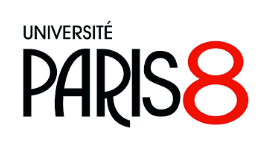16h30
salle 124 & visioconférence
retour à la page du Séminaire Grammaires créoles
Julia Pozas Loyo (Colegio de México)
séance jointe avec Langues d'héritage
Towards a Characterization of Mexican Colonial Spanish (1521-1810) (diaporama/ slides)
Until recently, Mexican Colonial Spanish (i.e. the Spanish spoken in the Viceroyalty of New Spain from 1521-1810) had been described only in a handful of papers. This lack of research was mainly due to two reasons: on the one hand, the absence of a large corpus of colonial texts edited with philological standards; on the other hand, for many decades, the Hispanic philological tradition centred the discussion about American Spanish on the Antillean Period and, more precisely, on verifying the Andalusian Hypothesis.
Fortunately, in recent years, many documental resources and language-specific investigations have contributed to improving our still-incipient knowledge on this subject. Based on them and relying on historiographical and demographic data, this talk aims to offer an account of Mexican Colonial Spanish through its linguistic features and the historical conditions that framed its development.
The talk is structured as follows: The first part is devoted to the Antillean period, that is, the period from 1493 to 1519, whose importance consists in having been the moment of formation of a levelled language that is supposed to be at the base of American Spanish. The second part of the talk focuses on Mexican Colonial Spanish. First, I will review some historical and demographic elements of the Viceroyalty. I will also discuss briefly the area's linguistic complexity and the probable influence that indigenous languages had on the constitution of Mexican Spanish. Finally, I will review some of the main phonic and morphosyntactic features of Mexican Colonial Spanish that, as we will see, have prevailed and still characterize this variety of Spanish, spoken by approximately 120 million people.
Funding : This seminar is supported by the BQI of the Université Paris 8.



